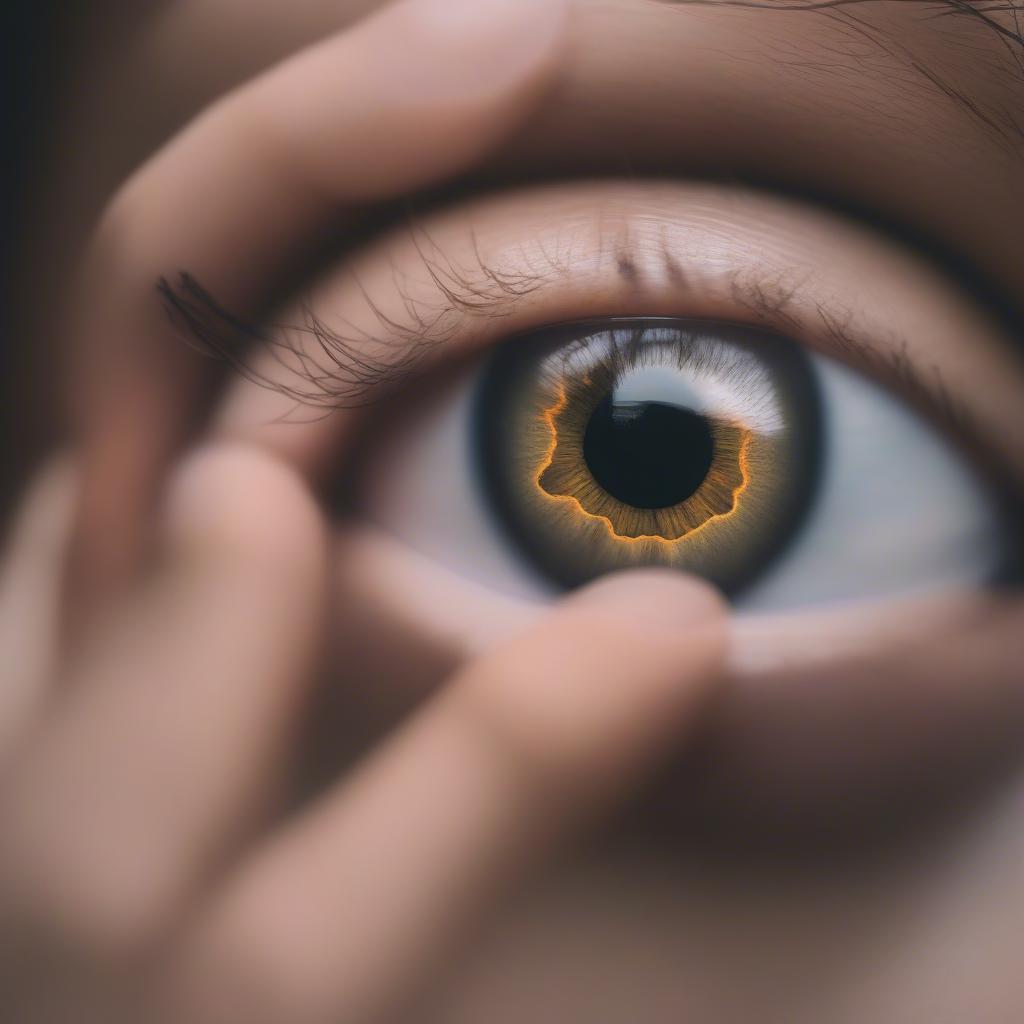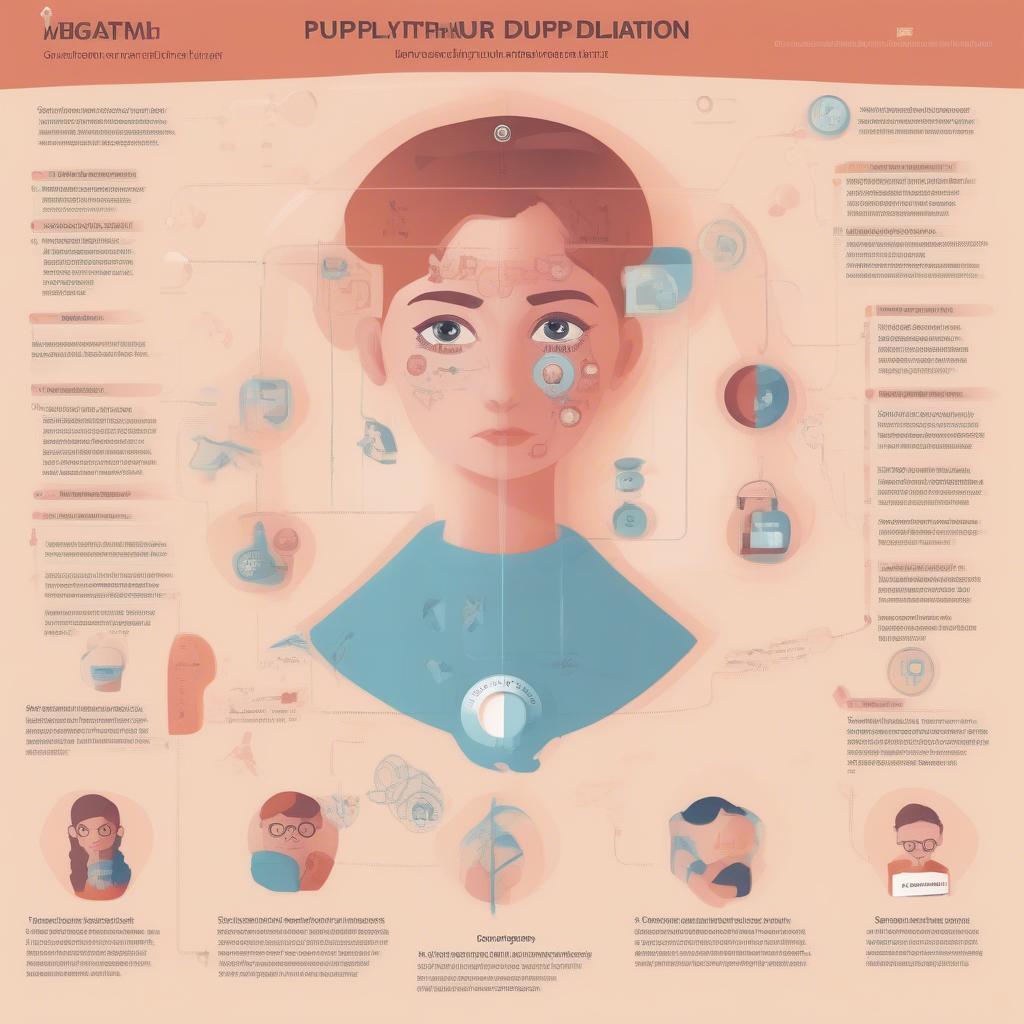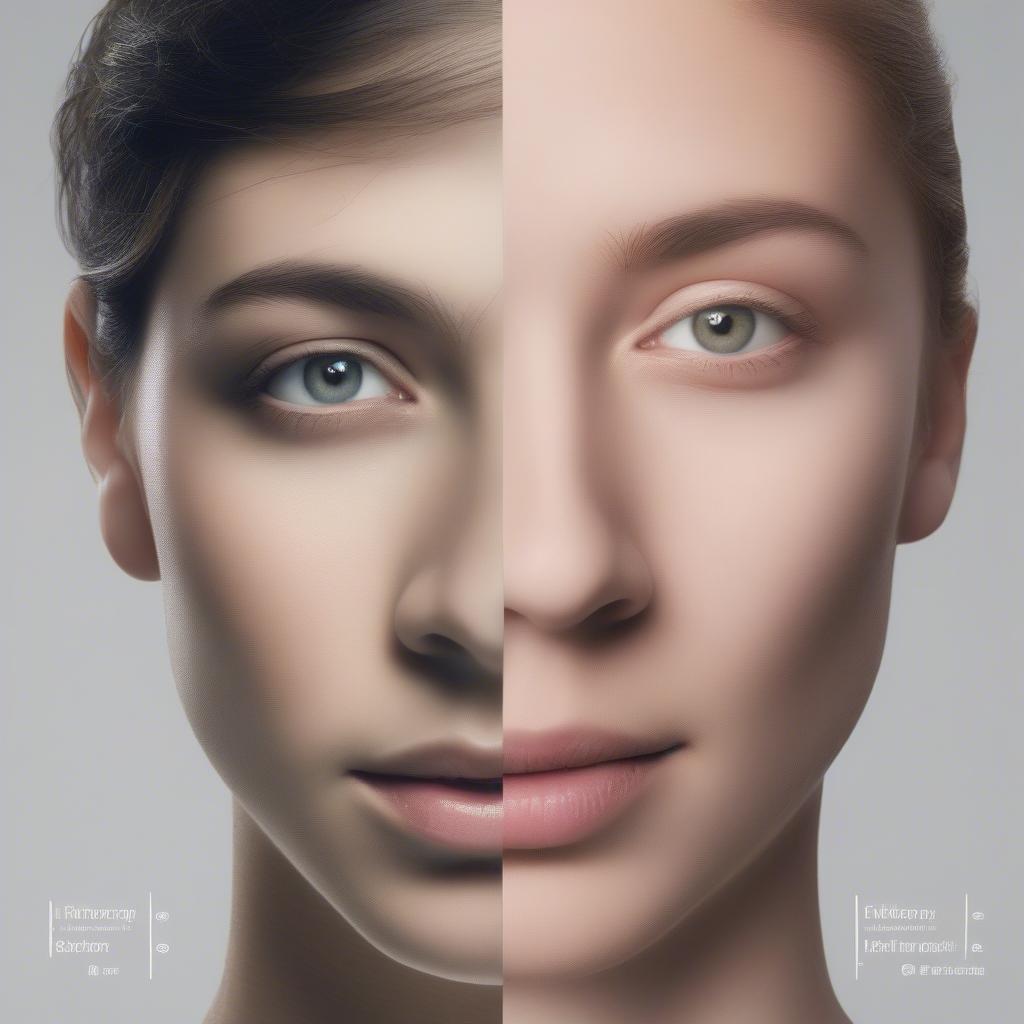Do Pupils Dilate When In Love? It’s a question that has intrigued poets, scientists, and lovers alike for centuries. This article delves into the fascinating connection between pupil dilation and romantic love, exploring the scientific evidence, psychological factors, and potential implications of this subtle yet powerful phenomenon.
The Science Behind Pupil Dilation and Love
Pupil dilation, the widening of the black center of the eye, is primarily controlled by the autonomic nervous system, specifically the sympathetic nervous system responsible for our “fight or flight” response. While light levels are a major factor influencing pupil size, emotional and cognitive states also play a significant role. When we experience something pleasurable, stimulating, or even frightening, our pupils tend to dilate. This includes the exhilarating rush of falling in love.
 Pupil Dilation and the Love Connection
Pupil Dilation and the Love Connection
The Role of Neurotransmitters
The connection between pupil dilation and love is largely mediated by neurotransmitters, the chemical messengers in our brain. Dopamine, a neurotransmitter associated with pleasure, reward, and motivation, is released in abundance during the initial stages of romantic love. This surge in dopamine can trigger pupil dilation, mirroring the heightened emotional state. Norepinephrine, another neurotransmitter involved in the stress response and arousal, also contributes to pupil dilation in the presence of a loved one.
Is It Just Love, or Something More?
While pupil dilation can be a sign of attraction and romantic interest, it’s important to remember that it’s not exclusively linked to love. Pupils can dilate due to various factors, including:
- Low Light: This is the most basic and common cause.
- Certain Medications: Some drugs, like atropine, can cause pupil dilation.
- Cognitive Effort: Concentrating on a difficult task can lead to dilated pupils.
- Fear or Excitement: These heightened emotional states can also trigger dilation.
 Factors Influencing Pupil Dilation
Factors Influencing Pupil Dilation
Reading the Signals: How to Interpret Pupil Dilation
Interpreting pupil dilation as a sign of love requires careful observation and consideration of the context. While dilated pupils can suggest attraction, they don’t necessarily guarantee romantic interest. Look for other nonverbal cues, such as prolonged eye contact, blushing, and smiling, to get a more complete picture.
Do Dilated Pupils Mean Reciprocal Feelings?
Unfortunately, there’s no definitive answer to this question. While your dilated pupils might signal your attraction, the other person’s pupil response doesn’t necessarily confirm mutual feelings. They might be experiencing other emotions or physiological responses that influence their pupil size.
The Evolutionary Perspective on Pupil Dilation
From an evolutionary standpoint, pupil dilation could have served as a non-verbal signal of interest and attraction, facilitating mate selection. Larger pupils make the eyes appear more appealing, potentially enhancing perceived attractiveness.
Pupil Dilation and Beauty Perception
Studies have shown a correlation between pupil size and perceived attractiveness. Images of faces with dilated pupils are often rated as more attractive than those with constricted pupils. This suggests that pupil dilation might play a subtle yet significant role in our perception of beauty.
 Pupil Dilation and Attraction
Pupil Dilation and Attraction
Conclusion: Do Pupils Dilate When In Love? A Complex Interplay
So, do pupils dilate when in love? The answer is a nuanced yes. While pupil dilation can be a physiological response to the emotional and neurological changes associated with romantic love, it’s not a foolproof indicator. Context, other non-verbal cues, and individual variations all play a role in interpreting this subtle sign. Understanding the science behind pupil dilation can provide valuable insights into the complex interplay of emotions and physiology that underlies the experience of love. However, remember that true connection is built on much more than just dilated pupils.
FAQ
- Can you control pupil dilation? While you can’t consciously control your pupils, they react involuntarily to stimuli like light and emotional states.
- Is pupil dilation always a sign of attraction? No, pupil dilation can be caused by several factors, including low light, medication, and cognitive effort.
- Can dilated pupils indicate other emotions besides love? Yes, fear, excitement, and even surprise can cause pupil dilation.
- Do men and women’s pupils dilate differently in response to love? There’s no significant scientific evidence suggesting a difference based on gender.
- Can pupil dilation be used as a lie detector test? No, while pupil dilation can indicate arousal or cognitive effort, it’s not a reliable measure of deception.
- Does everyone’s pupils dilate the same amount when in love? No, individual responses can vary.
- Can medical conditions affect pupil dilation? Yes, certain neurological and ophthalmological conditions can influence pupil size and reactivity.
For further assistance, please contact us at Email: contact@daiduongtranhba.com, address: Michigan Ave, Suite 3100, Chicago, IL 60611, USA. We have a 24/7 customer support team.

